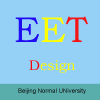-
Distance education and learning style
普通类 -
- 支持
- 批判
- 提问
- 解释
- 补充
- 删除
-
-
Distance education and learning style
TODAY'S COMPETITIVE JOB MARKET often requires advanced degrees. Rapid technology changes result in a tremendous need for ongoing professional education, but less available time to pursue it. For these reasons, plus the explosive growth of the Internet, distance education has become a widely used alternative to traditional classroom instruction
.jpg)
-
Is distance education for everyone?
Maybe not. A recent study used Kolb's Theory of Learning to investigate how a student's learning style affects her performance in an online learning environment. (Terrell, 1999) The study found that some students are less likely to have success in a distance education program.
-
Kolb's theory of learning
Kolb uses a learning style inventory to measure a student's preference for four learning strategies.
Concrete experience emphasizes personal experience and feelings. When using this strategy, the student is adaptable to change and open-minded when approaching problems.
Abstract conceptualization requires the student to logically analyze ideas and systematically approach a task.
Reflective observation relies on personal thoughts and feelings, especially patience, careful judgment and understanding the problem from various points of view.
Active experimentation focuses on what works, and what doesn't work. The student learns by trial-and-error as she attempts to change and influence situations.
These four learning strategies combine into a score for two scales. Scores from the two scales identify the student's preferred learning style:.jpg)
-
Who succeeds at distance education?
Students in an online science and technology masters degree program were asked complete the Kolb Learning Style Inventory. Researchers noted which students successfully completed the program.
Convergers (82.5%) and Assimilators (84.8%) had strong success rates. This was predictable as Kolb asserts that people in technology, science and information processing prefer these learning styles.
Also predictable was the lower (60%) success rate of the Accommodators. This supports the expectation that online classes do not provide the hands on learning and human interaction that Accommodators prefer. Still, the results indicate that a majority of Accommodators may override their preferred learning style and, given the motivation, succeed in an online learning environment.
Surprisingly, Divergers (80%) showed nearly the same success as Convergers and Assimilators. Researchers suggest that the Diverger's ability to view problems from many points of view, as well as to learn by observation, helped them to flourish in the online environment.-
More Information
For more information on this topic, see the following EET articles:
Distance Education
Distance Education: the Human Dimension
Course Design-
Author
Sandra Kahn ,Information Technology Specialist ,SDSU College of Education
-
-
- 标签:
- education
- distance
- student
- success
- kolb
- online
- learning
- style
- technology
- environment.
-
加入的知识群:



学习元评论 (0条)
聪明如你,不妨在这 发表你的看法与心得 ~